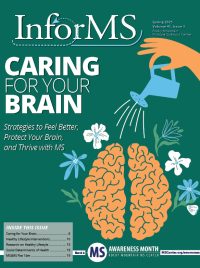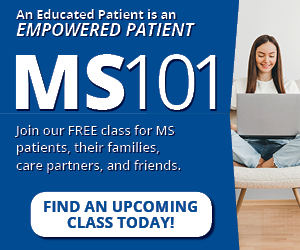Cognitive changes can be one of the more frustrating and invisible symptoms of multiple sclerosis—but you’re not alone in facing them. The Rocky Mountain MS Center is committed to helping people living with MS better understand, manage, and adapt to cognitive changes through a wide array of supportive resources.
Whether you’re newly diagnosed or noticing subtle changes in memory, attention, or processing speed, RMMSC has tools to help you stay informed, proactive, and connected.
On-Demand Learning: Webinars and Presentations
The MS Center’s robust video library includes expert-led presentations that break down complex topics around cognition into practical guidance. These sessions are available free of charge and are designed to empower patients and families alike.
- Cognition in MS, a featured talk by Dr. Anna Shah from the Fall 2023 Education Summit, explores how MS affects the brain and what individuals can do to protect and improve cognitive health.
- Facing and Managing the Cognitive Challenges of MS, a 2019 webinar featuring Jeffrey Gingold, offers strategies for everyday life—from memory aids to emotional resilience.
- Cognitive Functioning in MS, a webinar from January of 2024, features Dr. Brian Hoyt going even deeper into cognition than in his interview in this issue.
Further Reading: More from InforMS Magazine
If you prefer to learn through reading, InforMS Magazine has covered cognition in depth over the years:
- “Exercising Your Brain” (Spring 2019) offers practical ideas for mental fitness tailored to people with MS.
- “The Power of Creativity” (Spring 2021) explores how creative practices like art and music can support brain health.
- “Brain Drain” (Summer 2013) (Downloadable PDF) presents one of our earliest deep dives into the cognitive effects of MS and remains a helpful foundational read.
All past issues are available online at MSCenter.org/informs.
Why It Matters
The brain is always adapting. Even when MS causes damage, people can build cognitive reserve and develop new pathways through neuroplasticity. That’s why education, self-care, and proactive tools are essential. RMMSC’s resources are designed to help you understand what’s happening and what you can do about it.
Whether you’re looking for guidance, insight, or simply to feel seen, these materials can be a powerful place to start.






